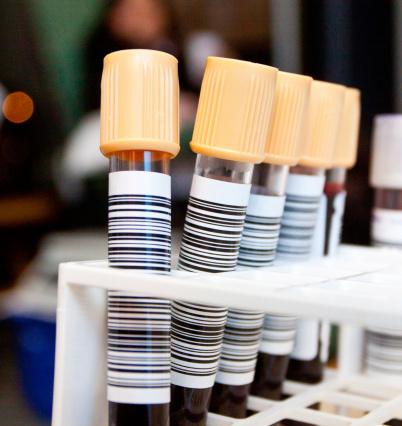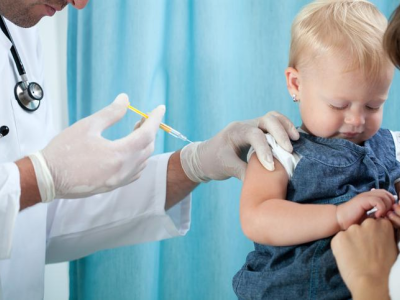In the latest scientific developments on Ebola, a France-based team reported that Ebola RNA is more stable in blood samples than in urine, and Profectus BioSciences, Inc. reported encouraging preclinical trial results for a vaccine targeted to a range of filoviruses, including West Africa's Ebola outbreak strain.
The study on Ebola stability in blood and urine is based on samples obtained from seven lab-confirmed case-patients early this year. The findings were published online today in Emerging Infectious Diseases.
The researchers found that in blood samples, Ebola RNA was stable for at least 18 days, but in urine RNA degraded faster, testing negative within 2 to 4 days. They said the results are similar to postmortem findings on macaques.
The investigators concluded that blood sampling is probably more sensitive and reliable than oral swabbing, and plasma samples can be tested for up to 18 days, even if stored at ambient temperatures. They added that urine doesn't seem useful for initial Ebola diagnosis.
Vaccine moving to clinical trials
In vaccine news, Profectus' chief scientific officer John Eldridge, PhD, presented findings on vaccine candidate VesiculoVax rVSVN4CT1 at a recent filovirus medical countermeasure workshop held in Fort Detrick, Md., the company said in a news release yesterday.
Eldridge said the company has been working for several years on a single vaccine to protect against all filoviruses. The vaccine has been developed with the support of US government agencies, including the Department of Defense, the Biomedical Advances Research and Development Authority (BARDA), and the National Institutes of Health (NIH).
In the release, Eldridge said the preclinical trial found that the components of the trivalent Ebola/Marburg vaccine when given in a single dose didn't interfere with each other and work together to provide broad protection. He added that the vaccine is advancing to clinical trials, with the first human dose to be administered in the middle of 2016. (The press release did not specify what animals were involved in the study, and CIDRAP News was unable to ascertain that by press time.)
Profectus said it is developing a freeze-dried version of the vaccine that can be stockpiled for years without refrigeration.
WHO confirms no Guinea cases
In other Ebola developments, the World Health Organization (WHO) today confirmed in its weekly Ebola update that Guinea reported no cases last week, which comes just a day after the country's health officials announced that the last known patient has recovered and tested negative on a second test.
The patient is a baby born to an Ebola-infected mother who died from her disease. If the country goes 42 days without a new case, it will join Liberia and Sierra Leone as having ended transmission.
The WHO said the child was born in an Ebola treatment center and delivered by a medical staff wearing full personal protective equipment. It added that no contacts were associated with the baby and that earlier contacts of previous cases have completed their 21-day follow-up periods.
The agency noted that, as of Nov 15, all contacts of a Scottish nurse who was hospitalized in London with late Ebola-related complications have completed their monitoring periods. Pauline Cafferkey was released from Royal Free London on Nov 11 and was admitted to Glasgow's St. Elizabeth's Hospital for her continuing recovery from meningitis illness.
See also
Nov 18 Emerg Infect Dis study
Nov 17 Profectus press release
Nov 18 WHO Ebola situation update



















